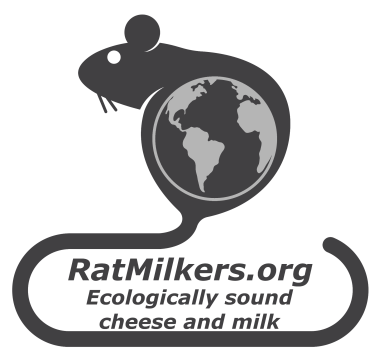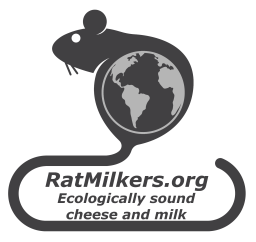Green solutions in a changing world.
Our Mission
Provide high quality milk and cheese at a fraction of the carbon footprint of more traditional dairy farming.
Benefits of Commercially Produced Rat's Milk
Commercially produced rat's milk offers a range of potential benefits across various verticals, including sales to research facilities, commercial feeding of infant rats for pet snakes, and a speculative market of rat milk products for human consumption. This business analysis explores the potential advantages and opportunities in each of these verticals.
- Sales to Research Facilities: One significant vertical for commercially produced rat's milk is supplying research facilities for feeding infant research rats. The benefits include:
- Nutritionally Balanced Diet: Rat's milk is specifically formulated to meet the nutritional requirements of infant rats. It provides essential proteins, fats, vitamins, and minerals necessary for their growth and development.
- Enhanced Research Outcomes: By ensuring a consistent and high-quality food source, researchers can eliminate variables associated with inconsistent nutrition, leading to more reliable research outcomes.
- Cost Savings: Commercially produced rat's milk allows research facilities to streamline their operations by eliminating the need for in-house milk production. This can lead to cost savings in terms of infrastructure, labor, and resources.
- Commercial Feeding for Pet Snakes: Another potential vertical is the wholesale feeding of infant rats with commercially produced rat's milk for pet snakes. The advantages are as follows:
- Convenience and Safety: Rat's milk provides a convenient and safe alternative to traditional feeding methods. It eliminates the need for snake owners to breed and raise feeder rats, reducing potential risks associated with disease transmission and inadequate nutrition.
- Controlled Nutrition: Rat's milk allows for precise control over the nutritional content, ensuring the infant rats fed to pet snakes are healthy, well-nourished, and free from potential health issues.
- Scalability: Commercial production of rat's milk enables suppliers to meet the demand for feeder rats in the pet snake market more efficiently. This can result in increased scalability and a reliable supply chain for pet owners and breeders.
- Speculative Market for Human Consumption: While it remains a speculative market, there is potential for commercializing rat milk products for human consumption. Some potential benefits include:
- Nutritional Value: Rat's milk is known to be high in proteins, vitamins, and minerals, making it potentially valuable as a nutritional supplement or alternative milk source for individuals with dietary restrictions or specific nutritional needs.
- Ethical Considerations: Rat milk production could be seen as a more ethical alternative to conventional dairy farming, as rats are smaller animals and may require fewer resources compared to larger livestock.
- Niche Market Opportunity: With the increasing demand for alternative milk sources, targeting a niche market interested in unique and innovative food products could potentially lead to market differentiation and competitive advantage.
Commercially produced rat's milk presents various benefits and opportunities in different verticals. Sales to research facilities provide consistent nutrition for infant research rats, enhancing research outcomes and reducing costs. Wholesale feeding of infant rats for pet snakes offers convenience, safety, and scalability for snake owners and breeders. Additionally, the speculative market of rat milk products for human consumption could tap into niche markets seeking nutritional alternatives and ethical food sources. As with any new market venture, thorough market research, regulatory compliance, and consumer acceptance are vital considerations for successful commercialization.

